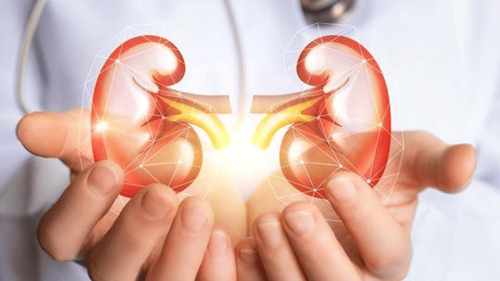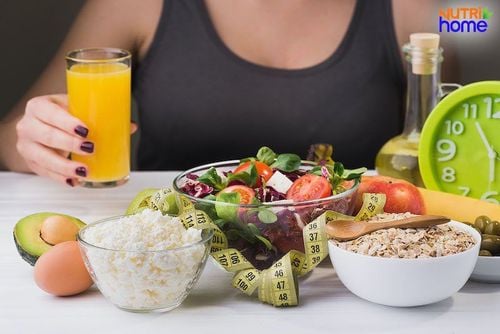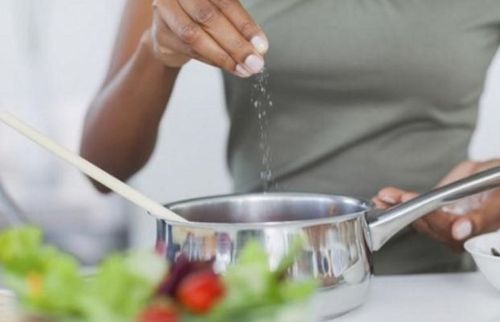This is an automatically translated article.
Salt is one of the spices that add flavor to the dish, however, you should not abuse them because using too much salt causes some health problems.
1. Health risks of consuming too much salt
Consuming too much salt will cause you to encounter a number of health problems, including:
High blood pressure : Consuming too much salt will cause your blood pressure to rise. Salt is one of the factors that contribute to stroke, cardiovascular disorders... Currently, about one-third of the population has high blood pressure. Therefore, it is necessary to reduce daily salt intake and exercise regularly to ensure stable blood pressure levels. Stomach effects: If your diet contains too much salt, you will be at risk of stomach ulcers. Helicobacter pylori bacteria contribute to related stomach disorders such as cancer and stomach ulcers. The mucosa is affected by the salt, making it easier for bacteria to attack. In addition, gastric cancer treatments will also be affected if the sodium level in the body is high. Effects on the kidneys: The kidneys will be affected if you eat too much salt. Salt is the culprit that causes kidney damage. Excess calcium excreted by the kidneys in the urine is caused by salt. The accumulation of calcium easily causes kidney stones along with blood pressure and psychological stress. Weakened bone density: Women are susceptible to loss of bone density and weak bone structure. The risk of osteoporosis increases if you use too much salt will have a very high risk of osteoporosis and this disease is more common in women than in men. Diets that use too much salt lead to severe calcium loss. Salt and sodium are proportional to each other, high salt, high sodium ratio and this is the cause of your bones brittle, easy to break. Asthma: Too much salt in the diet can trigger an asthma attack. Besides, salt also contributes to the symptoms of the disease. When reducing salt consumption, asthma patients will feel more positive signs of improvement.
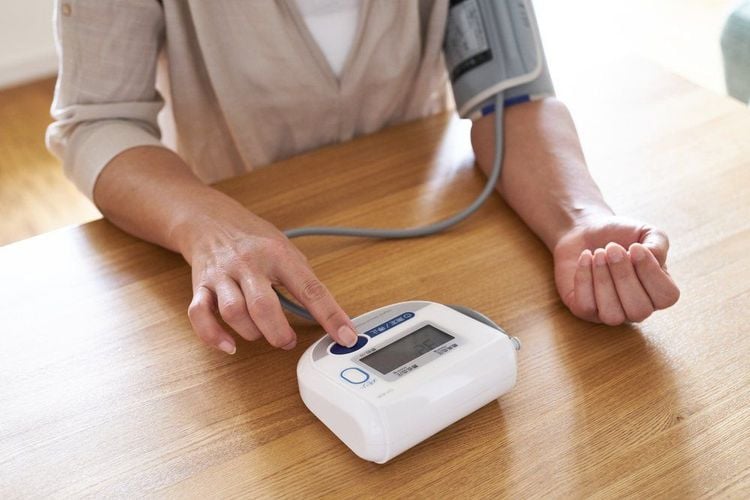
Dùng nhiều muối sẽ dễ gây bệnh tăng huyết áp
2. How much salt is too much?
Your body needs sodium to balance fluids and maintain the nervous system, but most Americans get 20 times more than they need each day. Too much salt can raise blood pressure, so it's not recommended to consume more than 2,300 milligrams (mg) per day. Equivalent to about 1 teaspoon of table salt. Your maximum daily salt intake may be lower, ie 1,500 mg, depending on the risk you may be experiencing. Nearly half of Americans need that lower limit.
3. Check the product label
Most of the sodium we get is from packaged and processed foods, so make it a habit to read the nutritional information of the product on the label. Look for foods with less than 120 mg of sodium per serving. Check the amount of food you have: If you eat too much, you will also get more sodium.
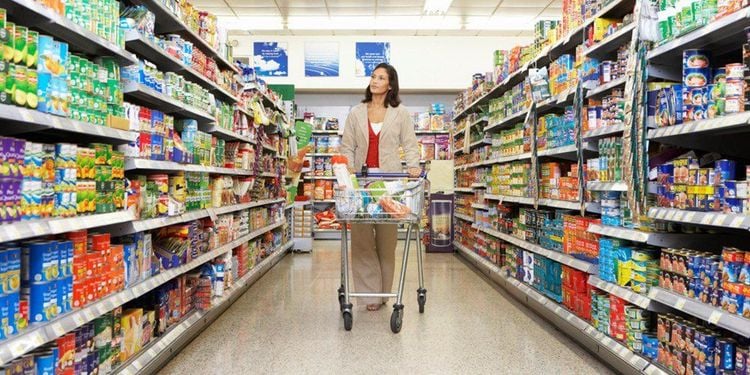
Nên kiểm tra thông tin dinh dưỡng sản phẩm trước khi lựa chọn
4. Read the product's ingredients
Sodium is not always listed as salt on a food package. Other words you need to look out for include brine, sodium benzoate, sodium bicarbonate (baking soda), sodium chloride, sodium nitrate, and monosodium glutamate (MSG.)
5. Be careful when choosing frozen foods
Pre-processed frozen foods are very convenient, you just need to turn on the microwave to enjoy. However, these foods often contain a lot of sodium. You should only consume it 2 to 3 times per week. When choosing these foods, compare the labels of different products. You should choose products that contain 600g of sodium or less.
6. Canned soup
Soup is a super salty food. For example, some brands of chicken noodles contain up to 790 mg of sodium in one cup. Some low-sodium soups can even have more salt than homemade versions. When you buy canned soup, read product labels carefully to look for products that don't contain salt. Choose soups that contain no more than 5 mg of salt per serving.
7. Healthy foods
It's no surprise that salty snacks like chips and cookies are high in sodium, but there's also a wide variety of healthy foods. Among them are vegetable juices, vegetables seasoned or served with sauces, canned or marinated vegetables (like pickles), ketchup and salsa. That's because you eat a lot of fresh vegetables. Buy frozen foods with no sauces or seasonings, and choose brands and canned juices that are low in salt.
8. Bread
Although bread doesn't taste salty, they are often very high in sodium. For example, one slice of whole wheat bread can contain 150 mg of sodium. One oat bran bagel can have 600 mg, which is more than a quarter of the sodium you should be eating in a day!
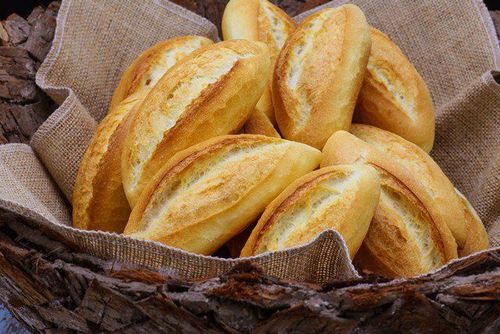
Bánh mì chứa hàm lượng natri rất cao
9. Pizza
Some toppings, like pepperoni, have a lot of salt in them. Therefore, the best way to enjoy pizza is to make it yourself at home. They are better for your health. If you order, choose a thin crust, not thick. Skip the top meat and add the cheese, topping the vegetables.
10. Cold meat
Ready-made deli meats such as bagged ham and turkey may be loaded with sodium. Other super-salty items include meats like bacon, hot dogs, and even chicken. You should choose fresh meats. Or else, you need to choose processed meats that are low in sodium. And when you buy poultry, check the label to make sure brine or broth isn't added to the product.
11. Cheese
Processed cheeses (like American cheese) and very hard cheeses (like cheddar) contain a lot of sodium. When you snack on cheese or add it to dishes, choose low-sodium varieties like mozzarella, goat cheese, and ricotta.
12. Condiments
Sauces, spreads, salad dressings and dips can contain more sodium than you think. For example, one tablespoon of ketchup contains 154 mg of salt. The same amount of soy sauce contains 1,000 mg. (And most people use more than that.) Switch to spices that are labeled as salt-free or low-salt. You need to know how much salt you consume per day.
13. Pay attention to the menu
When you eat out, you need to avoid foods that the menu or waiter describes as pickled, marinated, smoked or grilled. They are likely to contain high amounts of sodium. Instead, look for dishes that are steamed, grilled, or boiled.
14 Add flavor to food except salt
When you cook at home, you can remove salt from dishes. (The exception is when baking with yeast.) Instead, use fresh, spiced herbs, garlic, and onions. Instead of salt, choose ground black pepper or freshly cut lemon you can squeeze into your food.
15. Be careful when choosing salt substitutes
Salt substitutes change sodium chloride to potassium chloride. You won't feel a difference, but you should consult your doctor before trying. These products increase potassium levels in the body, which can be harmful if you have high blood pressure, diabetes, or liver or kidney disease. (If you are healthy, your body will get rid of excess potassium without any problem.)
Vinmec International General Hospital with a system of modern facilities, medical equipment and a team of specialists Experts, doctors with many years of experience in medical examination and treatment, patients can be assured of examination and treatment at the Hospital.
To register for examination and treatment at Vinmec International General Hospital, you can contact Vinmec Health System nationwide, or register online HERE.
References: webmd.com
SEE MORE
Heart healthy diet: 8 steps to prevent heart disease Which foods are high in saturated fat? Children with asthma, breastfeeding mothers need to abstain from chicken?




